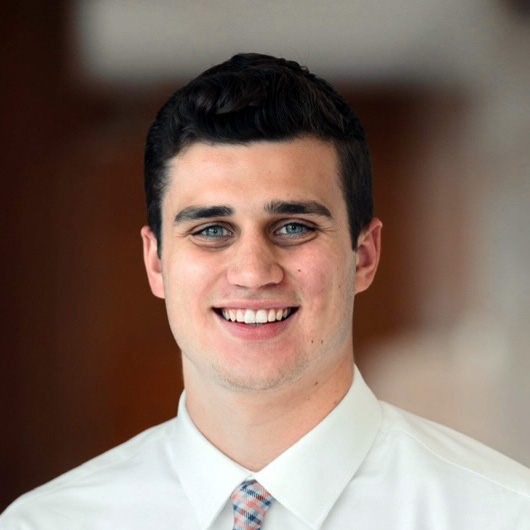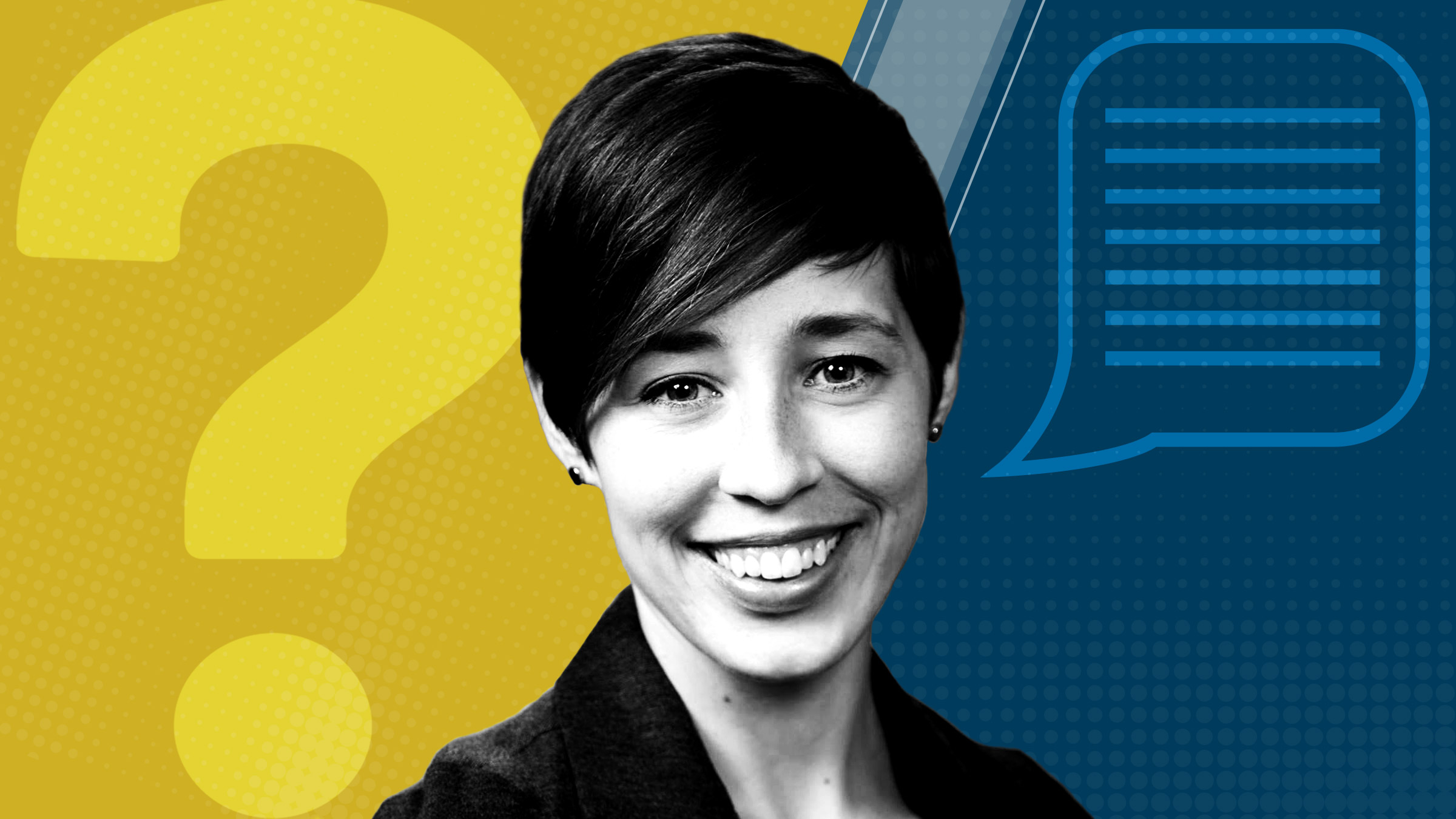Sometimes, the best way to understand an idea is to meet the people who devote their time and energy to studying it.
The Opportunity & Inclusive Growth Institute’s mission to conduct and promote research that will advance economic opportunity and inclusive growth for all Americans means engaging with a diverse group of scholars who approach opportunity and inclusion from many angles. This series of short Q&As spotlights those individuals, what led them to economics, and how their research connects to opportunity and inclusion. Plus: the most useful ideas in economics, abandoned projects, podcasts, and economists to lunch with.
For this installment, Institute Writer Landon Peterson sat down with Emily Leslie, assistant professor of economics at Brigham Young University, to discuss how contact with the criminal justice system affects economic opportunity, studying cause-and-effect questions, and “failing quickly.”
What made you decide to study economics? Have you always wanted to be an economist, and if not, what led you to economics?
I did not always want to be an economist. I didn’t like economics when I took it in high school, so I stayed away from it for a while in college. But when I finally took a Principles of Microeconomics class, I got introduced to economics in a different way and really enjoyed it—and then I changed my major. Once I got further into the major, I started to learn about the things that economists do when they’re working with data, and I was especially interested in the toolkit for answering cause-and-effect questions. That seemed really important to me, and I wanted to get good at it, so I decided to get a Ph.D.
What do you think is one of the most useful ideas in economics?
There are a lot to choose from. If I had to pick, the one that I think about most often and that comes up when I’m talking to people, both economists and non-economists, I would choose constrained optimization. The idea isn’t unique to economics; there are lots of fields that use constrained optimization, but we economists have our own flavor in terms of the kinds of situations where we apply it. Whether you are the decision-maker or you’re trying to understand what someone else is doing, it’s really helpful to think about, “What’s the objective of the decision-maker, and what are their constraints?” The ability to analyze decision-making when there are big trade-offs to be made is very helpful, and those decisions happen all the time.
What economist, living or deceased, would you want to have lunch with?
I’m going to cheat on this one and say that if I really got to pick someone to have lunch with, I wouldn’t choose an economist. I would probably choose to have lunch with a prison inmate, or a public defender, or a judge. Most of my research is in the criminal justice space, and I learn so much every time I get to talk to people who are more boots on the ground in their work. So, if I had a free pass to have lunch with anyone related to my work, I’d rather have lunch with someone who’s personally experiencing the criminal justice system in one way or another.
What are you studying now?
One of the projects I’m actively working on right now is about how getting a DWI [driving while intoxicated] affects drivers’ future labor market outcomes. We’re finding that people who get DWIs tend to have reduced earnings for at least several years. It has a pretty big impact on their economic opportunity.
What do you want to study next?
The project that I am working to get off the ground and that I’m planning to work on while I’m visiting the Opportunity & Inclusive Growth Institute next year is about how access to housing affects future outcomes, especially for those involved in some way with the justice system. My co-author and I want to study how being eligible for and being able to get approved for U.S. Department of Housing and Urban Development housing assistance affects people, especially people who are, for example, reentering from prison, have some kind of criminal record, or were in the household of someone with a criminal record. Our goal is to see how housing influences their labor market outcomes, the stability of their households, and other things like that.
How does your research relate to economic opportunity and inclusive growth?
Most of my research is connected to the criminal justice system, which touches so many lives. That was not something that I had an appreciation for until I was an undergraduate research assistant for a professor who was working on a criminal justice–related project. It just wasn’t something I had a lot of firsthand experience with, but so many people do have experience with the criminal justice system. It’s not that far from 10 percent of adults who have a felony conviction. A third of Black adult men have a felony conviction. It’s a ton of people. And the DWI research that I previously talked about is one of a larger literature of projects that shows that contact with the criminal justice system really matters for people’s economic opportunity. Those two things are very tightly related.
What’s an important economic statistic that you think people should know or one that surprised you?
I’m going to treat all statistics as economic statistics because economists like to play in everyone else’s sandboxes. The statistic that I’ve seen in so many talks that always sort of re-surprises me is the rate at which the United States imprisons people compared to other countries. I went and looked it up to make sure I had the numbers right: The imprisonment rate in the U.S. is 664 people per one hundred thousand people. That’s hard to interpret without a comparison point, but the next closest country on that list, which is El Salvador, has about a hundred fewer people per a hundred thousand. Canada has about a sixth of ours. Any country you can think of imprisons far, far fewer people than the U.S. It’s clearly a way that the U.S. is an outlier in the world.
Have you ever decided to abandon a project? Why did you abandon it?
Oh, so many times—I’ve got a whole graveyard of projects over here. There’s a lot of reasons why projects fail. I think that one of the most common reasons is data constraints. I’ll have an idea for something, and it would require access to certain kinds of data, and either those records haven’t been kept, or I can’t figure out a way to get access to them.
Another common reason is that my strategy for answering the question I want to answer doesn’t work out. Going back to the beginning of our conversation, I’m very interested in answering cause-and-effect questions. When you’re trying to answer a cause-and-effect question, but you can’t run an actual experiment, then you have to look around for variation that kind of mimics an experiment. Sometimes, you think you’ve found variation, but then it turns out you didn’t, and the project dies.
If you could do any job just for one day, what would it be?
I would host a show or a podcast like Fresh Air on NPR. It’s a long-form interview podcast, and I just love asking people questions about themselves. I think I would actually really enjoy getting to do that in a structured way, where it makes a lot of sense for me to be asking all the questions and listening to the answers.
What’s the best piece of advice you’ve read or received?
For research, the best piece of advice I’ve received is “fail quickly.” Figure out what is most likely to go wrong with your project and try to check it, test it, or poke at it as quickly as you can so that you don’t invest a lot in something that’s ultimately going to be a dead end. It helps you work more efficiently so that you can spend your time on things that are going places.






